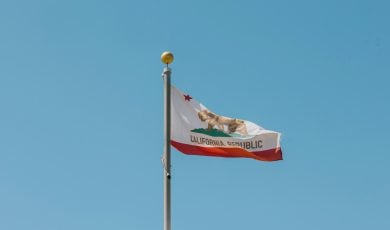Lawmakers in Michigan were able to get a bill to legalize online gambling through the Senate late Thursday evening.
The Committee on Government Operations finally discussed H 4926 on the final day of the 2018 legislative session. The bill, sponsored by Rep. Brandt Iden, legalizes online poker and casinos games in Michigan.
However, there is a single line in the new bill that sports betting advocate will monitor closely.
The division may permit internet gaming operators licensed by the division to accept internet wagers under this act on any amateur or professional sporting event or contest.
The division referenced will be a newly formed entity within the Michigan Gaming Control Board (MGCB), which would be tasked with overseeing all forms of internet gaming. It’s of importance to note, the bill gives this division the power to create a sports betting licensing structure, but they are not required to do so.
One last step
The committee did an amendment to the proposed legislation before it came up for a vote. That vote came overwhelmingly in favor of passing the bill by a margin of 33-5. Deep in to the early hours, the House passed the same version of the bill by a 71-35 vote.
The bill now moves to the desk of Gov. Rick Snyder for his signature. It is uncertain if the governor intends to sign the bill but many anticipate him doing so.
What is in the legislation?
A major component of H 4926 is its tax structure.
The bill imposes a 1.25 percent tax on online gambling activities which will go directly to the city of Detroit. Couple that with a relatively low 8 percent tax rate and that comes to 9.25 percent total. This rate is applicable to all forms of online casino gambling, including casino slots online, table games, poker, and sports betting.
However, the 1.25 percent will not apply to tribal offerings. Tribes would be allowed to apply for a sports betting license under commercial licensing rules and exempt from the extra payment.
Road to legalization
Its been a tough road for Iden’s bill. Many thought the lame-duck session was not enough time for the bill to make it all the way to the governor’s desk.
Iden has also had his hands full addressing tribal and commercial gaming interest alongside the state lottery. In November, Iden said he was taking note of how New Mexico was able to amend their state compact to allow tribal gaming and sports betting.
It appears instead of dealing in separate compacts, the state came up with a solution that puts tribal and commercial casino on relatively equal footing when interactive gaming gets up and going.
In fact, the bill also stipulates that no one can launch anything for 15 months after the bill becomes law. Unlike other states, like Pennsylvania, which is letting PA online casinos launch as they receive licenses, the gap in Michigan allows enough time for all parties to be ready to launch at roughly the same time.
Michigan is the first state to pass online gambling in a state where there is tribal gaming, so this dynamic is something with no real precedent to work off of in other states.








